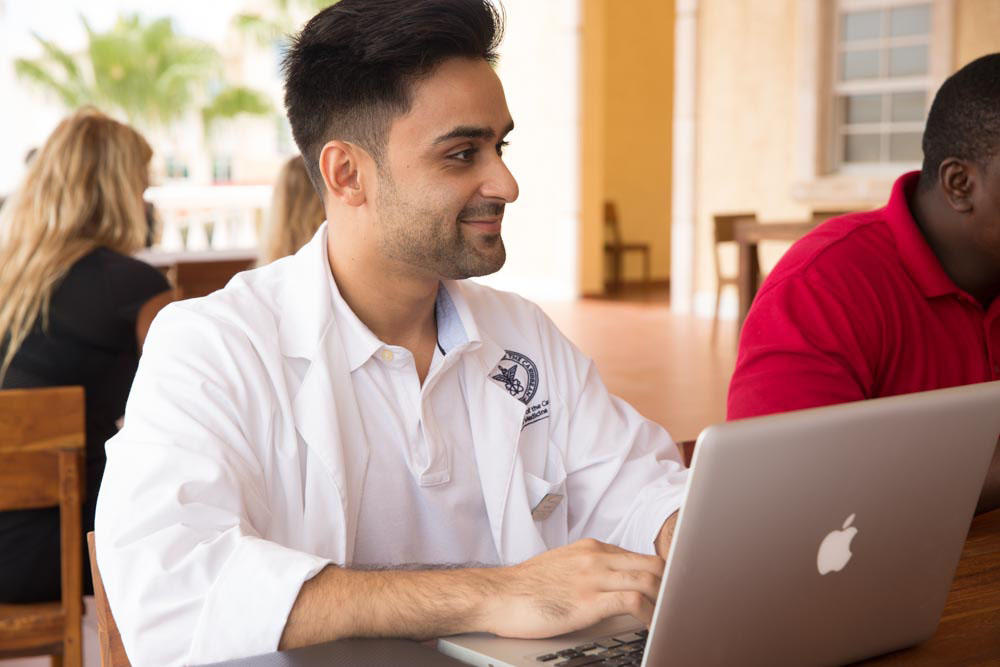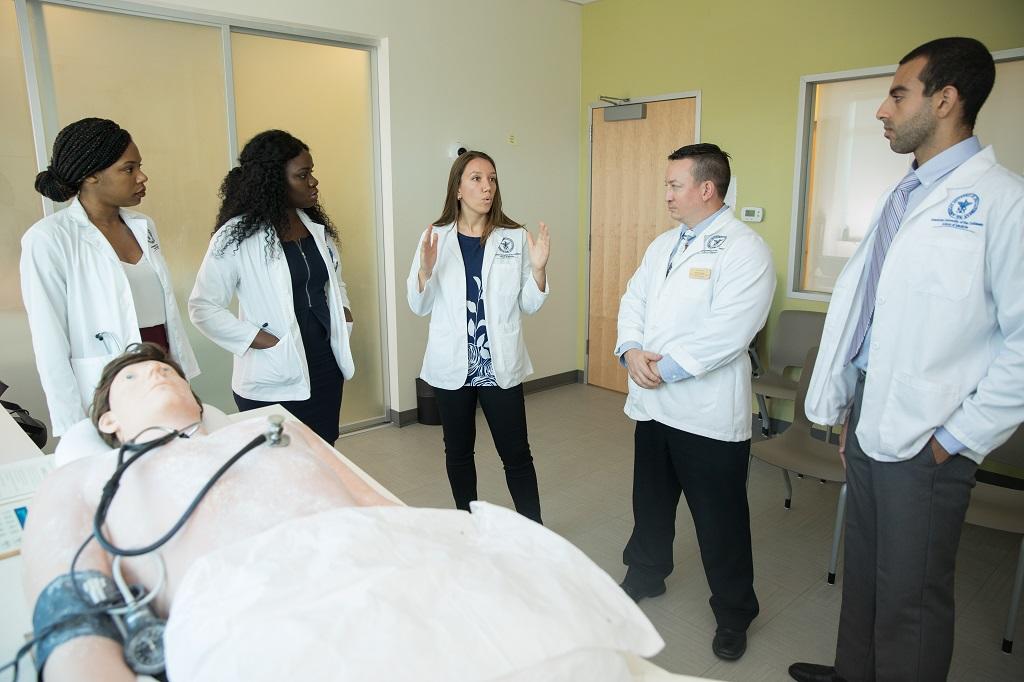You’ve known you want to be a doctor for a long time and have been studying for years with an eye on practicing medicine. Your decision is made and now it’s time to prepare for your Medical College Admissions Test (MCAT). Like most pre-medical students, you have heard about the difficulty and significance of the MCAT test, and you may be wondering how to prepare for the MCAT.
There’s no right or wrong way to approach MCAT prep. If you spend ample time on MCAT prep, getting a competitive score is within your reach, says Julio Sierra III, Associate Director of Admissions, Eastern U.S. and Puerto Rico for American University of the Caribbean School of Medicine (AUC). Sierra, who reviews applications and extends admission offers to hundreds of students annually, recently shared several tips on preparing for the MCAT.
HOW TO STUDY FOR THE MCAT
1. Understand the MCAT
The first step is to understand what the MCAT is, says Sierra. The MCAT is a standardized, multiple-choice, computer-based test that has been a part of the medical school admissions process for more than 90 years, according to the American Association of Medical Colleges (AAMC). Nearly all medical schools in the United States and several in Canada require MCAT scores, and many schools and graduate programs now accept MCAT scores in lieu of other standardized tests. The MCAT exam tests you on the skills and knowledge that medical educators, physicians, medical students and residents have identified as key prerequisites for success in medical school and practicing medicine.
2. Be thoughtful about your undergraduate course selection
Many pre-med students think they should cram in science classes, and take multiple science classes in one semester. It’s good to major in a field that relates to the kind of doctor you want to become, but it’s also important not to overload yourself on one subject. Preparing for the MCAT includes having a well-rounded undergraduate education. You should have a broad education and include the humanities, accounting, psychology, and literature, which will help you with MCAT prep in the four core test sections. They include:
- Biological and Biochemical Foundations of Living Systems
- Chemical and Physical Foundations of Biological Systems
- Psychological, Social, and Biological Foundations of Behavior
- Critical Analysis and Reasoning Skills
As you take these science courses, practice applying the concepts you’re learning—you can start by using the challenge questions often included at the end of your textbook chapters.
3. Start your MCAT test prep early
When should you start preparing for the MCAT? The answer depends on the strength of your MCAT study skills, but the AAMC recommends that the average pre-med student spend between 300 and 350 hours over several months on MCAT prep. Remember the rule of three (months) - the general rule of thumb is that you’ll need to dedicate about three months studying for the MCAT.
It is important to start your MCAT prep well in advance, which will give you plenty of time to master the core concepts. While you may have scored favorably on standardized tests for undergraduate admission—the American College Test (ACT) or Scholastic Assessment Test (SAT)—the MCAT is a totally different challenge.
4. Find a study schedule and routine that works for you
As you wonder how to start studying for the MCAT, remember to keep your learning style at the forefront. Everyone has a different study routine for MCAT test prep—from flashcards to concept maps to study groups—but the most important thing is to gain a deep understanding of concepts you may be tested on so that you can apply that knowledge. Memorization won’t work. Comprehension is truly the name of the MCAT prep game. Make sure to also schedule time to review content you’ve already studied to continue to reinforce these topics over time. Creating a study plan schedule can help you maximize your time, and stay on track for your test date.
When preparing for the MCAT, make sure you also get the support you need—from a study partner or group, an online forum, or a trusted professor or advisor, all of whom might be able to help you better understand a concept that’s just not sticking.
5. Take MCAT practice tests often
Once you’ve got a firm grasp on the concepts, start to look at MCAT practice exams and questions. Practice problems are a great way to determine if you are ready to sit for the test. You should also take full-length practice exams to ensure you have the stamina for the actual test day. When you take your practice tests, try to mimic the testing environment as much as possible. For example, if you plan on taking the MCAT at 8 am on test day, take your practice exam at 8 am, too.
The AAMC offers a number of planning and MCAT study guides, including a free official MCAT prep sample test.
Beyond these MCAT prep tips, the normal rules of a big exam apply: eliminate distractions, don’t cram the night before, get a good night’s sleep and a hearty breakfast, and consider doing a practice run to the test site so you’re comfortable with the route and not surprised by the parking situation. Remember that there is no one best way to study for the MCAT. Try out various methods and see which ones work for you. You’ve got this!




